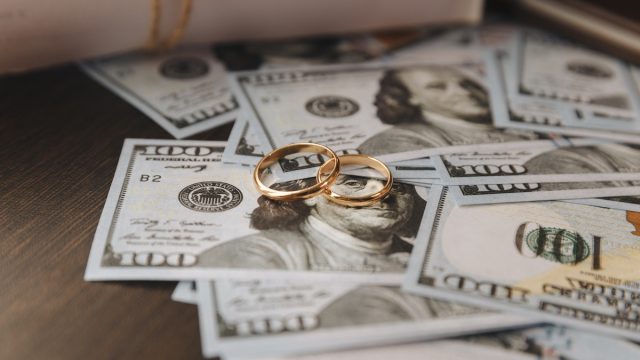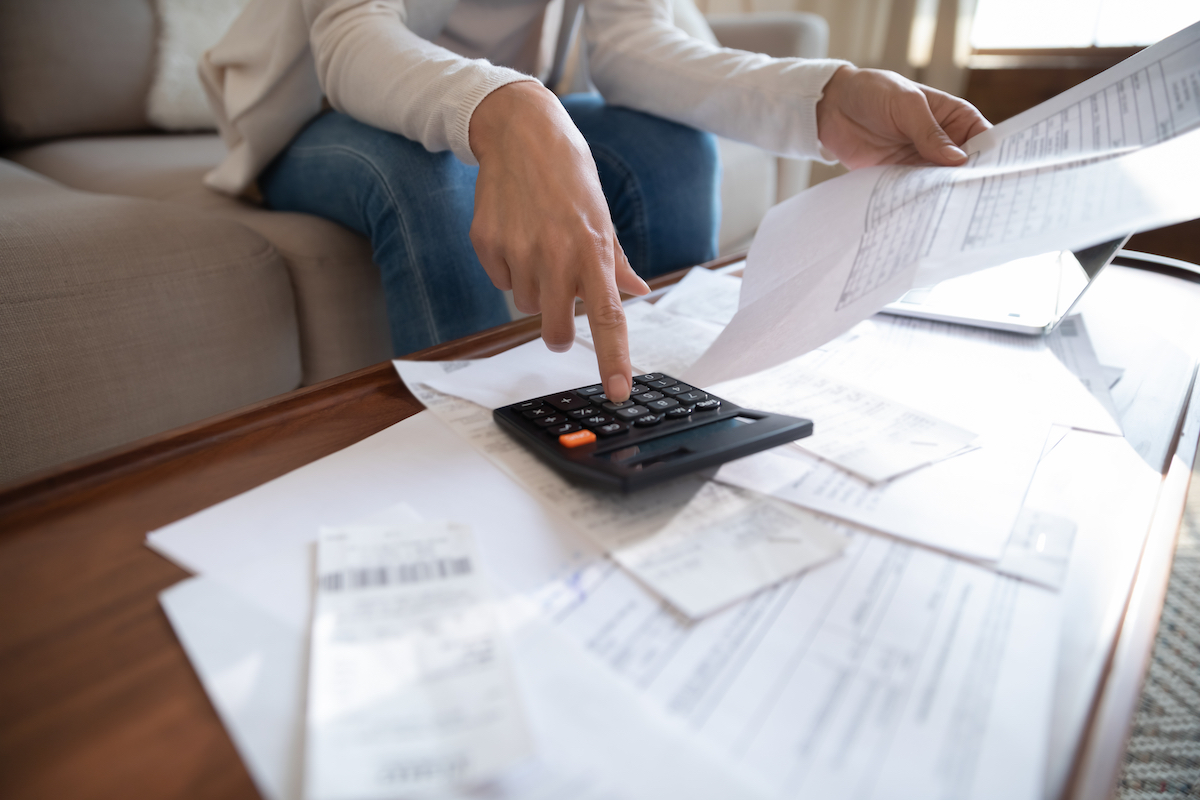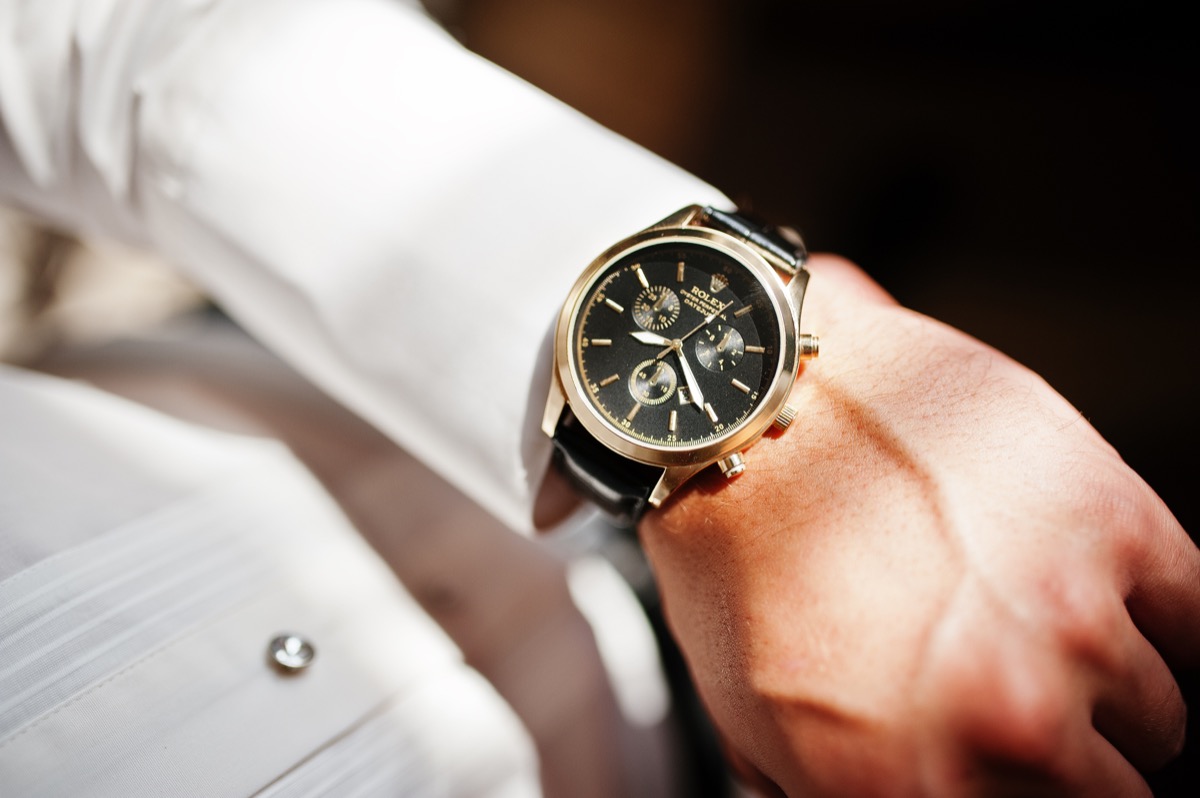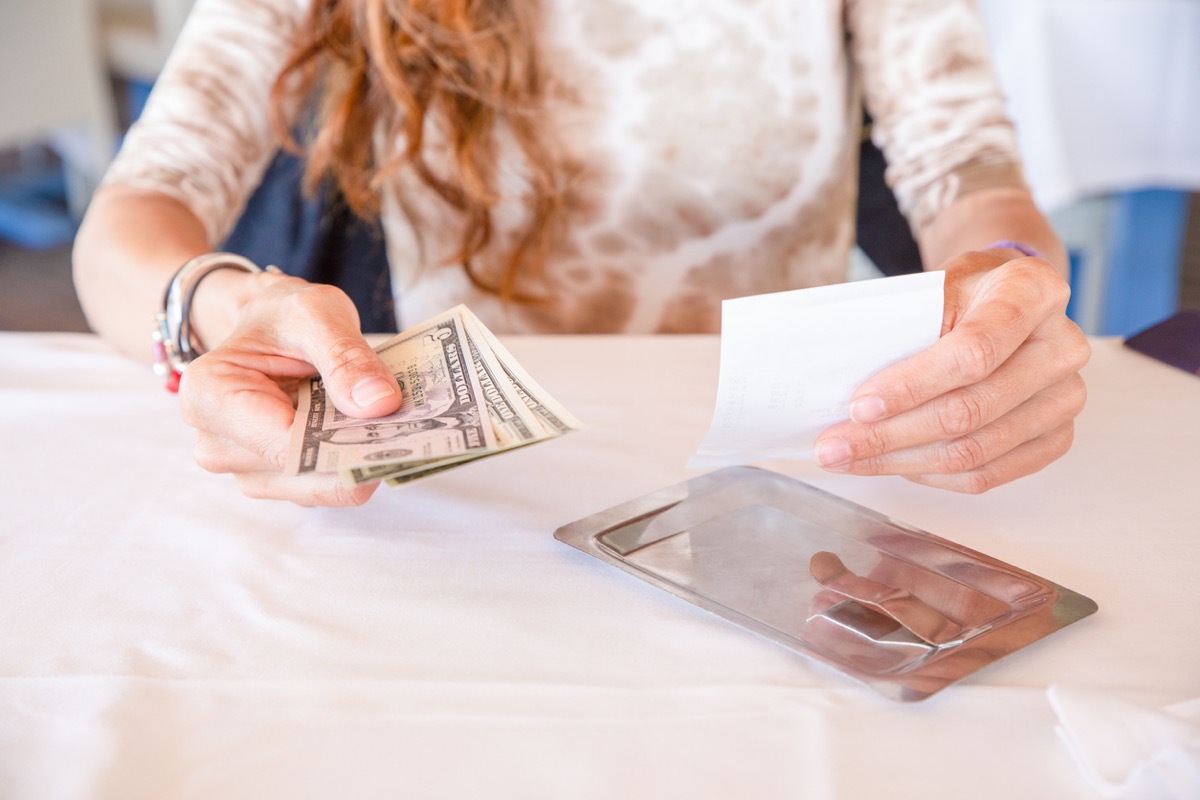8 Things You Should Stop Buying After a Divorce, Finance Experts Say

Besides the dissolution of your actual partnership, divorce has a way of dismantling other areas of your life. After ending your marriage, you may find yourself navigating the new rules of co-parenting, social scenarios, and finances, among other things. In fact, according to Forbes, it’s hard to overstate the financial impact of divorce—especially for women. In 2022, the magazine wrote that women over the age of 50 who became divorced experienced a 45 percent drop in their standard of living, while men took a 21 percent hit to their finances.
The answer is of course not to stick it out in a deeply unhappy or dysfunctional relationship—in some cases, divorce is unavoidable. However, preparing for the monetary changes you may undergo as a result of your divorce can help you to thrive after the dust settles and the paperwork is signed. In fact, financial experts say that by planning your future spending now, you can enter this next life stage with clearer eyes and a fuller wallet—two things that may help you through the transition.
Wondering what to stop buying after you get divorced? Read on to find out which expenses to curb for greater financial freedom in your newly single life.
RELATED: 10 Things You Should Stop Buying When You Retire, Finance Experts Say.
1
Shared or duplicate expenses

For many married couples, shared expenses are paid by shared funds. When you divorce, you may find that certain goods or services that you identified as “shared” while married are actually only benefiting your ex—for instance, car insurance, cell phone bills, or hobby-related expenses.
Not only should you immediately stop payment if you notice these types of expenses, but you should also plan on quickly establishing your own accounts and freezing any shared credit cards, says Andrew Lokenauth, the finance expert behind Be Fluent In Finance and The Finance Newsletter. This is especially important since your ex’s spending could continue to affect your credit score for as long as your accounts are connected.
2
Expensive housing

Within your marital home, especially if you were in a dual-income family, you may have become accustomed to a larger house or one with nicer furnishings. It can be emotionally challenging to downsize or downgrade your space.
“Post-divorce, there’s often a longing for stability, and owning a home can feel like a solid step. As much as you might want that house with the picket fence, it’s a good idea to pump the brakes,” says Jonathan Merry, resident finance expert for Moneyzine.
Instead, he recommends taking this time to embrace your life’s state of flux and make sure you know what you want before committing to a new property. “Even though you might be itching to settle down immediately after the final decree, give it a year. Major life decisions after a life-altering event can often be impulsive. You don’t want any buyer’s remorse on this one,” he says.
RELATED: 9 Major Red Flags That Signal Divorce, Therapists Say.
3
New cars

Oftentimes, newly divided housing arrangements mean someone will need new wheels. However, Amy Colton, CDFA, a certified divorce financial analyst and family law mediator with Your Divorce Made Simple, says you should think twice before buying a new car shortly after a divorce.
“If transportation is needed, it might be better to consider a used car or keep the current one, if possible. A new car can come with hefty monthly payments and higher insurance rates, which might not be sustainable on a single income or with increased expenses after divorce,” she says.
4
Competitive gifts for the kids

Both the emotions and financial stresses of divorcing can become heightened when kids are involved. Some parents try to soothe their children and themselves by spending.
“The aftermath of a divorce often means wanting to shower your kids with love. And that’s amazing! But, sometimes this love translates into a spending spree, aiming to outdo the other parent,” says Merry. “Whether you’re rolling in dough or scraping by, overspending isn’t the answer. Remember, kids value love and stability more than the priciest toys. Prioritize a balanced home environment and thoughtfully chosen gifts.”
RELATED: 5 Reasons You Shouldn’t Get a Joint Bank Account With Your Partner, Experts Say.
5
Luxury goods

Even if it’s only for the short term while you find your footing, it’s wise to shift your financial expectations after a divorce. Some people do the opposite by ramping up spending on luxury goods with big-name brand appeal and a price tag to match.
“Following a divorce, individuals may find their disposable income significantly reduced,” says Colton. “Impulse buying or purchasing luxury items can lead to further financial strain. Emotions can run high, and it might be tempting to indulge as a form of self-care or distraction, but this can exacerbate financial challenges.”
Lokenauth agrees that you should aim to cut this category of unnecessary expenses. “Reduce spending on expensive items like jewelry, designer clothes, handbags, and more,” he advises.
6
Vacations

You may be looking for a change of scenery after a difficult divorce, but experts warn against expensive trips that could put you in financial jeopardy.
“While it might be tempting to take a getaway post-divorce, pricy vacations can drain savings. Instead, consider more budget-friendly trips or local staycations until financial stability is reestablished,” advises Colton.
RELATED: 7 Things Divorced People Wish They Had Done Differently in Their Marriage.
7
Expensive activities and dining out

Other expensive activities that may serve as a distraction and feel good at the moment could also be unwise for your wallet. Lokenauth recommends cutting down on fine dining and club memberships during this financial transition.
“Dining out can become a significant expense,” Colton agrees. “While it’s essential to maintain a social life after a divorce, frequent restaurant visits can strain a budget. Learning to cook, meal planning, or hosting potlucks with friends can be cost-effective alternatives.”
8
Clothes and other aesthetic expenses

After a divorce, many newly single people want to mark their fresh start in love and life with a fresh, new look. However, Merry warns against spending excessively on things like clothes, accessories, and make-up, which offer little return on your investment.
“I understand that being newly single again means you would want some physical changes. It might make you want to mix things up—new clothes, new hair, or even more drastic changes,” he says. While Merry admits that making small, empowering tweaks to one’s appearance can feel “fantastic,” you should be cautious about going overboard. “Emptying your wallet on an extreme makeover right now might not be the best idea,” he tells Best Life.
For more financial tips sent directly to your inbox, sign up for our daily newsletter.
Best Life offers the most up-to-date financial information from top experts and the latest news and research, but our content is not meant to be a substitute for professional guidance. When it comes to the money you’re spending, saving, or investing, always consult your financial advisor directly.